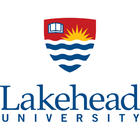- ข่าวและบทความ
- Find usIDP AustraliaIDP BahrainIDP BangladeshIDP CambodiaIDP CanadaIDP ChinaIDP EgyptIDP GhanaIDP Hong KongIDP IndiaIDP IndonesiaIDP IranIDP JordanIDP KenyaIDP KoreaIDP KuwaitIDP LebanonIDP MalaysiaIDP MauritiusIDP Middle EastIDP NepalIDP New ZealandIDP NigeriaIDP OmanIDP PakistanIDP PhilippinesIDP Saudi ArabiaIDP SingaporeIDP Sri LankaIDP Taiwan, ChinaIDP ThailandIDP TurkeyIDP UAEIDP VietnamIDP Corporate
- Social
- ไทย
- Where we operate
- Courses
- Scholarships
- IELTS
- About IDP
- บริการเสริมจาก IDP
- ข่าวและบทความ
- Find us
- Find us
- Find nearest IDP offices
- IDP Australia
- IDP Bahrain
- IDP Bangladesh
- IDP Cambodia
- IDP Canada
- IDP China
- IDP Egypt
- IDP Ghana
- IDP Hong Kong
- IDP India
- IDP Indonesia
- IDP Iran
- IDP Jordan
- IDP Kenya
- IDP Korea
- IDP Kuwait
- IDP Lebanon
- IDP Malaysia
- IDP Mauritius
- IDP Middle East
- IDP Nepal
- IDP New Zealand
- IDP Nigeria
- IDP Oman
- IDP Pakistan
- IDP Philippines
- IDP Saudi Arabia
- IDP Singapore
- IDP Sri Lanka
- IDP Taiwan, China
- IDP Thailand
- IDP Turkey
- IDP UAE
- IDP Vietnam
- IDP Corporate
- Social
- เปลี่ยนภาษา
- IDP Education /
- รูปภาพแบนเนอร์เนื้อหา /
- Canada /
- Lakehead University /
- Bachelor of Arts and Scienc...

Bachelor of Arts and Science in Interdisciplinary Studies (Honours) - Environment in Politics and Culture
At LAKEHEAD UNIVERSITY

สถานที่
Canada
คุณสมบัติ
Bachelor Degree with Honours
ช่วงเวลา
4 Year(s)
ภาคการศึกษาใหม่
01 May 2025
คะแนนในการยื่นสมัคร
6.5
IELTSCOURSE_INFO
As an Interdisciplinary Studies major, you can choose any two disciplinary areas from the following: Anthropology, Biology, Criminology, English, General Science, Geography, History, Media, Film and Communications, Political Science, Psychology, Sociology. You will develop advanced critical thinking skills, problem-solving strategies and specialized knowledge pertaining to a variety of topics. We also offer the ability to pursue concentrations in Environment in Politics and Culture, Human Nature, Social Justice, and International Conflict and Human Rights.
You may also choose to combine your degree with a Concurrent Education degree that allows you to teach Primary-Junior grades. If you are thinking about teaching in the future, our Interdisciplinary Program provides the broad range of knowledge necessary to teach at the Primary-Junior level.
The program of study emerges from social science and humanities approaches to the environment, focusing on the ethical, political, social and cultural challenges posed by environmental problems, political organization and governance structures involved in social change, and the cultural frameworks through which environment has been understood in various periods, places, media, and aesthetic modes. Students will use problem-based learning to explore effective responses to environmental problems in contexts such as local governance, political organizing, policy development, art, media, popular culture, storytelling, and formal and informal education. The Environment in Politics and Culture concentration appeals to individuals who are community and volunteer-oriented and willing to engage as citizens and problem-solvers on the state of their lived environments. It would also appeal to active and life-long learners, educators, artists, writers, and politically active individuals. This concentration leads to work, career, community, and further study opportunities in the fields of education, public service, the charity and not-for-profit sector, law and policy development, community organizing, media and journalism, law, and the arts.
- ทุนการศึกษา ดูทุนการศึกษาทั้งหมด
- ฝึกงาน
ข้อกำหนดในการสมัคร Lakehead University
or Completion of Grade 12 and the Secondary School Diploma,
A minimum of 6 Grade 12U or M courses, or equivalent, including program specific prerequisite courses,
A minimum 70%* overall final average
International Baccalaureate Diploma Programme applicants who achieve their diploma with a total score of at least 24 may be eligible for admission. Three Higher Level subjects must be completed. Prerequisite courses can be presented at either Standard Level or Higher Level. Meeting the minimum admission requirements does not guarantee admission. Some of our competitive programs may require a total score greater than 24.
Successful graduation from an academic secondary school program or equivalent (For most countries, the same academic preparation as is required for university entrance in that country is required for consideration. Refer to Admission Requirements by Country.)
Program-Specific Prerequisite courses completed at the senior level (e.g. Grade 12),
Equivalent of a minimum 70% overall final average (Canadian)
IELTS - Minimum Score - 6.5 (no individual score less than 6.0).
TOEFL - Minimum Score for Internet Based Test (iBT) - 80 (no component score less than 19).
Minimum Score for Computer Based Test (cBT) - 213 (no component score less than 17.
Minimum Score for Paper Based Test (pBT) when Speaking is present - 550 (no component score less than 50.
DuoLingo English Test - Minimum Score: 110
The revised pBT is not accepted as Speaking is no longer a category.
ปิดรับสมัคร
ยังไม่มีวันกำหนดส่งใบสมัคร พูดคุยกับที่ปรึกษา IDP เพื่อขอข้อมูลเพิ่มเติม
Further information
If you aren't eligible for the above entry requirements, you might ant to explore pathway options at Lakehead University. If you want to find out more, speak to our counsellors.
อันดับมหาวิทยาลัยชั้นนำของโลก
1001st / 1250
อันดับมหาวิทยาลัยชั้นนำของโลกนักเรียนของเราคิดเห็นอย่างไร
ยังไม่มีความคิดเห็นเกี่ยวกับสถาบันนี้
แนะนำสำหรับคุณ
- ปริญญาตรี
- Canada
- ประเภททุนการศึกษา: Fee waiver/discount
- ปริญญาตรี
- Canada
- ประเภททุนการศึกษา: Fee waiver/discount
- ปริญญาตรี
- Canada
- ประเภททุนการศึกษา: Fee waiver/discount
- ปริญญาตรี
- Canada
- ประเภททุนการศึกษา: Fee waiver/discount
- ปริญญาตรี
- Canada
- DEADLINE: 02 Mar 2025
- ประเภททุนการศึกษา: Other Discount
- ปริญญาตรี
- Canada
- ประเภททุนการศึกษา: Fee waiver/discount
- ปริญญาตรี
- Canada
- ประเภททุนการศึกษา: Fee waiver/discount
- ปริญญาตรี
- Canada
- ประเภททุนการศึกษา: Fee waiver/discount
Your action plan
ขั้นตอน 1
Shortlist your courses
Choose the best three courses you’re most likely to pursue.
ขั้นตอน 2
Check your eligibility
Get an instant in-principle offer for courses with the IDP FastLane tag.
ขั้นตอน 3
Apply through IDP Live
Fill out the form once and use it to apply to multiple courses.
IDP FastLane ทำงานอย่างไร?
ด้วย 'ข้อเสนอตามหลักการ' ของ FastLane คุณจะรู้ได้ในไม่กี่นาทีว่าคุณจะได้รับการตอบรับหรือไม่!
เลือกสถาบันและหลักสูตร
สร้างประวัติการศึกษาของคุณ
ส่งใบสมัครของคุณเพื่อรับ 'ข้อเสนอในหลักการ'
สถาบันที่คุณเลือกจะส่งผลตอบรับถึงคุณภายในไม่กี่นาที!
เตรียมสมัครกับที่ปรึกษาผู้เชี่ยวชาญ




